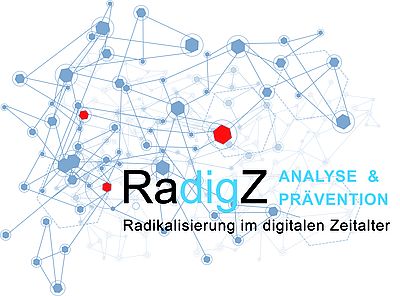Radicalisation in the Information Age
A qualitative and quantitative analysis of internet-based propaganda
Digital networking removes the boundaries of communication boundaries in terms of time and space. At the same time, it enables the user to remain largely anonymous. Both of these factors play a role in connection to criminal offences such as hate speech or preparations for terrorist attacks etc.
Following discussions on the ‘Internet’ factor (Social Identity Model of Deindividuation Effects, media logic, formative power, mediatised worlds), the project raised the question of the role digital media in the construction of radical identities.
Associated external practice partners support the research with their expert knowledge of relevant online platforms in the extremist milieu and their knowledge of significant criminal procedures. The materials and content obtained from the relevant chats, social media groups, closed and open forums were then assessed in qualitative and quantitative analyses of content, discourse and network.
The BMBF funded RadigZ as part of the Federal Government’s “Research for Civil Security 2012–2017” programme as part of the call for proposals titled “Civil Security – Aspects and Measures to Combat Terrorism”. The funding period was three years (February 2017 to February 2020).
Contact at the University of Greifswald
Prof. Dr Stefan Harrendorf
Chair of Criminal Law: Criminology, Criminal Procedure and Comparative Criminal Law and Justice
Domstraße 20
17489 Greifswald
Tel.: +49 3834 420 2138
stefan.harrendorfuni-greifswaldde

